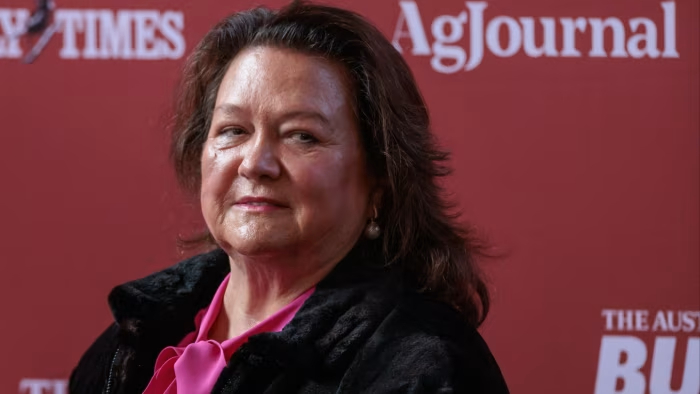Unlock the Editor’s Digest for free
Roula Khalaf, Editor of the FT, selects her favourite stories in this weekly newsletter.
Gina Rinehart’s Hancock Prospecting has warned that iron ore demand has “plateaued” as the mining group owned by Australia’s richest person diversifies with investments in lithium and rare earths.
Hancock on Friday said its net profit fell 44 per cent to A$3.1bn (US$2bn) in the year to June as the iron ore price declined and severe storms disrupted shipments from the Pilbara region of Western Australia. Revenue fell 21 per cent to A$11.6bn.
Iron ore is Australia’s largest export, accounting for as much as 4 per cent of the country’s GDP, according to economists. But weakening demand from the Chinese property sector and the official launch later this year of the Simandou mine in Guinea, part-owned by Hancock’s partner Rio Tinto, has put pressure on prices.
In recent years, Rinehart has expanded her company’s holdings to other materials, particularly rare earths, which are vital to the manufacture of fighter jets, electric vehicles and smartphones and of which China controls much of the world’s supply.
The value of her holdings in companies including Lynas Rare Earths, MP Materials and Arafura Rare Earths has boomed after Australia and the US signed an agreement to co-invest in a non-Chinese supply chain. She has also invested in the energy, beef and consumer goods sectors.
But Pilbara’s iron ore remains the core of Hancock’s business. The company said on Friday that “red tape” was threatening Australia’s mining sector, echoing peer BHP’s warning on the impact of stricter regulation.
“This is concerning given demand for iron ore has plateaued and first ore from the massive, high-grade Simandou iron ore development — which will compete against Australian ore — is expected before the end of the year,” Hancock said in its results statement.
Garry Korte, chief executive of Hancock, took aim at the Australian government’s spending plans and emissions reduction goals.
“Australian industries and companies operate in an environment of escalating government expenditure, including subsidies, benefits, opaque forms of support and increased bureaucratic wastage,” he said. “Many of these industries and companies cannot afford the massive changes and costs required to meet greater net zero requirements.”
Rinehart, a supporter of US President Donald Trump, who has long railed against regulation and high taxation in the sector, said red tape would have a knock-on effect for public services.
“Less real investment, record debt and substantial interest payments, declining international competitiveness, record business failures and excess bureaucracy do not enhance our standards of living,” she said.
In the year to June, Hancock paid discretionary dividends of A$488mn to Rinehart and other family members. But A$6.4bn remains held in reserve for an unresolved court case over royalties between Rinehart and two of her children.
